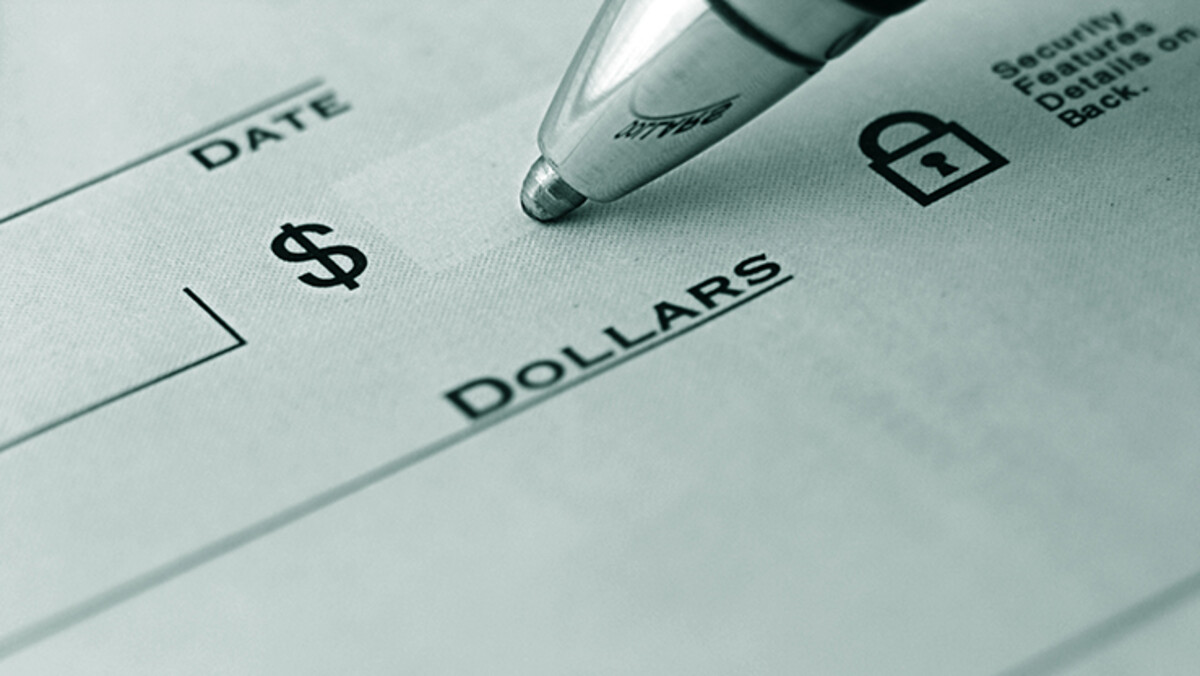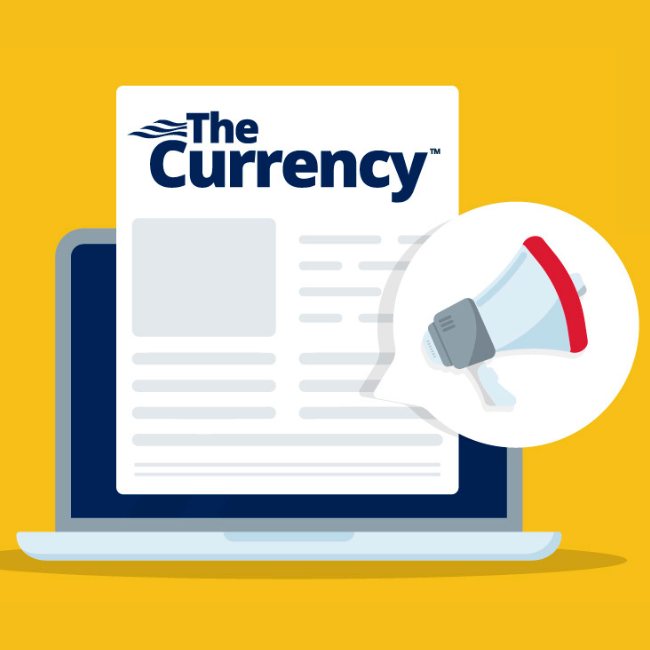The U.S. wants to cancel paper checks. Here’s why
The U.S. wants to cancel paper checks. Here’s why
The federal government is moving to end paper check usage by Sept. 30 in a bid to save money and reduce fraud
The U.S. wants to cancel paper checks. Here’s why
The federal government is moving to end paper check usage by Sept. 30 in a bid to save money and reduce fraud


Listen
·The federal government is saying goodbye to paper checks. A new executive order requires agencies to only use electronic payments for tax refunds, Social Security, and other benefits by Sept. 30 this year.1
The move is expected to affect about 479,000 monthly Social Security payments, less than 1% of the 69 million total monthly payments. About 1.9 million tax refunds issued last year were paper checks, about 3.5% of the 55.7 million total reimbursements.2
The order goes beyond the IRS or the Social Security Administration. All federal agencies must transition to electronic funds transfer (EFT) methods like direct deposit, debit/credit card payments, digital wallets, and real-time transfers by the end of September.3
Paper checks won’t be accepted for payments made to the government, on everything from income tax bills to passport applications.4
Read more: Do you need to make estimated tax payments?
Reducing costs and fraud
The federal government handled at least 36 million paper checks in 2024, totaling about $175 billion for benefit payouts, tax refunds, vendor payments, and financial transactions between federal agencies, among other things.5
The complete shift to electronic payments is being promoted by the federal administration as a cost-savings measure. Potential savings include more than $650 million that the government spends annually on physical infrastructure and technology expenses for digitizing receipts and paper records.6
The move comes amid a steady decline in check usage for personal and business use. In the meantime, fraud has surged.7 The FBI recently warned about the rise in stolen checks from residential mailboxes and U.S. Postal Service collection boxes and facilities. The notice also said that bank reports of suspicious check activity have doubled in recent years.8
A 2024 federal study found about $688 million in mail-related check fraud during a six-month period between March 2023 and August 2023. About 44% of checks stolen from the mail were altered and then deposited, while 26% were used as templates to make counterfeit checks, according to the Financial Crimes Enforcement Network.9
Fraud has become more sophisticated in recent years with scammers exploiting bank requirements to make customer money available before fully verifying checks. Many share tips and even photos on social media message boards.10
Declining use
The federal government is not alone in trying to cancel paper checks. Target announced last summer that it would no longer accept personal checks from customers, joining other stores such as Aldi, Whole Foods, Gap, and Old Navy.11
Check writing has declined steadily since 1995, when about 50 billion checks were issued.12 Check usage fell 75% from 2000 to 2021, while debit card usage increased tenfold during the same period.13
Exceptions to the executive order will be made for people who don’t have access to electronic payments, as well as in emergency situations and other circumstances. The government is also planning a public awareness campaign on the switch.14
Read more: How to be smart in a digital society
Sticking with checks
Even with the rise of digital wallets and contactless payments, 73% of Americans keep paper checks around in case they might need them, according to a study from the Federal Reserve Bank of Atlanta.15
There were 11.2 billion checks issued in 2021.16 Checks remain a common form a payment for businesses such as contractors, lawyers, accountants, photographers, and landlords, not to mention gifts and charitable donations. More than two-thirds of Americans over the age of 65 regularly use checks, while less than 10% of those age 25 and under use them.17
Empower research shows that nearly half of Americans (49%) feel safer holding cash. There’s a similar sentiment behind the use of paper checks — at least for some.
A bad experience with a payment app or concerns about data breaches — with the potential to compromise sensitive personal data or bank-account information — has led some consumers to stick with paper checks.18
Others use paper checks to avoid the surcharges, typically up to 3%, that some local businesses and governments might charge customers for accepting credit card payments. It’s still often free to write a check — where they’re accepted.19
Get financially happy
Put your money to work for life and play
1 White House, “Fact Sheet: President Donald J. Trump Modernizes Payments to and from America’s Bank Account,” March 2025.
2 New York Times, “Still Receive Paper Checks From the Government? That Will Soon End,” April 2025.
3 White House, “Fact Sheet: President Donald J. Trump Modernizes Payments to and from America’s Bank Account,” March 2025.
4 New York Times, “Still Receive Paper Checks From the Government? That Will Soon End,” April 2025.
5 PYMNTS, “Executive Order on Checks Targets $175 Billion in Government Disbursements,” March 2025.
6 White House, “Fact Sheet: President Donald J. Trump Modernizes Payments to and from America’s Bank Account,” March 2025.
7 CNBC, “The death of the personal check: As retailers move toward ‘check zero,’ here’s what that means for you,” July 2024.
8 FBI & USPIS, “Public Service Announcement: Mail Theft-Related Check Fraud is on the Rise,” January 2025.
9 FinCEN, “FinCEN Issues In-Depth Analysis of Check Fraud Related to Mail Theft,” September 2024.
10 Wall Street Journal, “We Can’t Give Up Paper Checks, and That’s a Gold Mine for Scammers,” November 2024.
11 AARP, “4 Retailers That No Longer Accept Paper Checks,” August 2024.
12 ABA Banking Journal, “Is it time to kill the paper check,” March 2024.
13 CNBC, “The death of the personal check: As retailers move toward ‘check zero,’ here’s what that means for you,” July 2024.
14 White House, “Fact Sheet: President Donald J. Trump Modernizes Payments to and from America’s Bank Account,” March 2025.
15 Federal Reserve Bank of Atlanta, “2023 Survey and Diary of Consumer Payment Choice: Summary Results,” June 2024.
16 ABA Banking Journal, “Is it time to kill the paper check?” March 2024.
17 Washington Post, “Paper checks are dead. Cash is dying. Who still uses them?” September 2023.
18 New York Times, “Why Paper Checks Refuse to Die,” July 2024.
19 New York Times, “Still Receive Paper Checks From the Government? That Will Soon End,” April 2025.
RO4409475-0425
The content contained in this blog post is intended for general informational purposes only and is not meant to constitute legal, tax, accounting or investment advice. You should consult a qualified legal or tax professional regarding your specific situation. No part of this blog, nor the links contained therein is a solicitation or offer to sell securities. Compensation for freelance contributions not to exceed $1,250. Third-party data is obtained from sources believed to be reliable; however, Empower cannot guarantee the accuracy, timeliness, completeness or fitness of this data for any particular purpose. Third-party links are provided solely as a convenience and do not imply an affiliation, endorsement or approval by Empower of the contents on such third-party websites. This article is based on current events, research, and developments at the time of publication, which may change over time.
Certain sections of this blog may contain forward-looking statements that are based on our reasonable expectations, estimates, projections and assumptions. Past performance is not a guarantee of future return, nor is it indicative of future performance. Investing involves risk. The value of your investment will fluctuate and you may lose money.
Certified Financial Planner Board of Standards Inc. (CFP Board) owns the certification marks CFP®, CERTIFIED FINANCIAL PLANNER™, CFP® (with plaque design), and CFP® (with flame design) in the U.S., which it authorizes use of by individuals who successfully complete CFP Board's initial and ongoing certification requirements.





